External links
- Treaties with The Barbary Powers : 1786-1836 from the Avalon Project
The Barbary Treaties refer to several treaties between the United States and the semi-autonomous North African regencies of Algiers, Tunis, and Tripoli, under the rule of the Ottoman Empire, known collectively as the Barbary Coast.

The First Barbary War (1801–1805), also known as the Tripolitan War and the Barbary Coast War, was a conflict during the Barbary Wars, in which the United States and Sweden fought against Tripolitania. Tripolitania had declared war against Sweden and the United States over disputes regarding tributary payments made by both states in exchange for a cessation of Tripolitanian commerce raiding at sea. United States President Thomas Jefferson refused to pay this tribute. Sweden had been at war with the Tripolitans since 1800. The First Barbary War was the first major American war fought outside the New World, and in the Arab world.
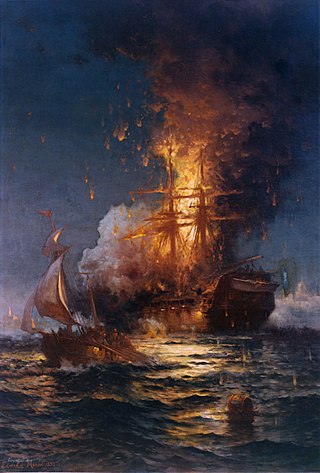
The Barbary Wars were a series of two wars fought by the United States, Sweden, and the Kingdom of Sicily against the Barbary states and Morocco of North Africa in the early 19th century. Sweden had been at war with the Tripolitans since 1800 and was joined by the newly independent US. The First Barbary War extended from 10 May 1801 to 10 June 1805, with the Second Barbary War lasting only three days, ending on 19 June 1815. The Barbary Wars were the first major American war fought entirely outside the New World, and in the Arab World.

The Second Barbary War, also known as the U.S.–Algerian War and the Algerine War, was a brief military conflict between the United States and the North African state of Algiers in 1815.
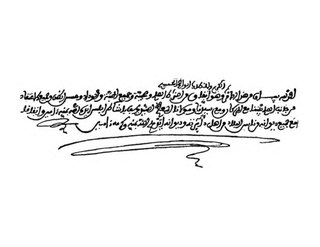
The Treaty of Tripoli was signed in 1796. It was the first treaty between the United States and Tripoli to secure commercial shipping rights and protect American ships in the Mediterranean Sea from local Barbary pirates.

William Eaton was a United States Army officer and the diplomatic officer Consul General to Tunis (1797–1803). He played an important diplomatic and military role in the First Barbary War between the United States and Tripoli (1801–1805). He led the first foreign United States military victory at the Battle of Derne by capturing the Tripoli subject city of Derne in support of the restoration of the pasha, Hamet Caramelli. He also gave testimony at the treason trial of former Vice President Aaron Burr. Eaton served one term in the General Court of Massachusetts, which is the state legislature both during and after the colonial era. Eaton died on June 1, 1811, at the age of 47.
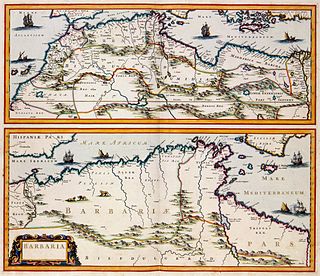
The Barbary Coast was the name given to the coastal regions of central and western North Africa or more specifically the Maghreb and the Ottoman borderlands consisting of the regencies in Algiers, Tunis, and Tripoli, as well as the Sultanate of Morocco from the 16th to 19th centuries. The term originates from the exonym of the Berbers.

The Barbary pirates, Barbary corsairs, or Ottoman corsairs were mainly Muslim pirates and privateers who operated from the Barbary states. This area was known in Europe as the Barbary Coast, in reference to the Berbers. Slaves in Barbary could be of many ethnicities, and of many different religions, such as Christian, Jewish, or Muslim. Their predation extended throughout the Mediterranean, south along West Africa's Atlantic seaboard and into the North Atlantic as far north as Iceland, but they primarily operated in the western Mediterranean. In addition to seizing merchant ships, they engaged in razzias, raids on European coastal towns and villages, mainly in Italy, France, Spain, and Portugal, but also in the British Isles, the Netherlands, and Iceland.
The second USS Ontario was a three-masted, wooden-hulled sloop of war in the United States Navy, bearing 16 guns, and saw service during and following the years of the War of 1812 and in the Second Barbary War. Ontario was built by Thomas Kemp, Baltimore, Maryland, in 1813; blockaded in Chesapeake Bay through the War of 1812; and sailed from New York for the Mediterranean on 20 May 1815, Master Commandant Jesse D. Elliott in command.

The Mediterranean Squadron, also known as the Mediterranean Station, was part of the United States Navy in the 19th century that operated in the Mediterranean Sea. It was formed in response to the First and Second Barbary Wars. Between 1801 and 1818, the squadron was composed of a series of rotating squadrons. Later, squadrons were sent in the 1820s to the 1860s to suppress piracy, primarily in Greece and to engage in gunboat diplomacy. In 1865 the force was renamed the European Squadron.

Ottoman Tripolitania, also known as the Regency of Tripoli, was officially ruled by the Ottoman Empire from 1551 to 1912. It corresponded roughly to the northern parts of modern-day Libya in historic Tripolitania and Cyrenaica. It was initially established as an Ottoman province ruled by a pasha (governor) in Tripoli who was appointed from Constantinople, though in practice it was semi-autonomous due to the power of the local Janissaries. From 1711 to 1835, the Karamanli dynasty ruled the province as a de facto hereditary monarchy while remaining under nominal Ottoman suzerainty. In 1835, the Ottomans reestablished direct control over the region until its annexation by Italy in 1912.
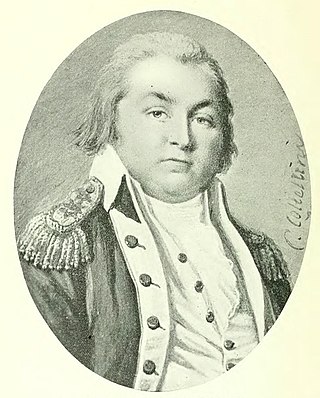
James Leander Cathcart was an American diplomat, slave, and sailor of Irish descent. He is notable for his narrative as a slave in Algiers, Ottoman Algeria, for eleven years.
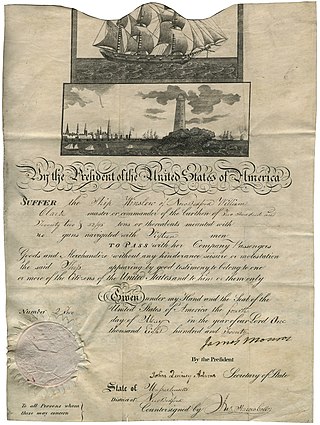
The Mediterranean pass was a document which identified a ship as being protected under a treaty with states of the Barbary Coast. Such a treaty exacted tribute in exchange for protection from Barbary pirates capturing that country's ships and crews. These passes identified ships which had safe passage.
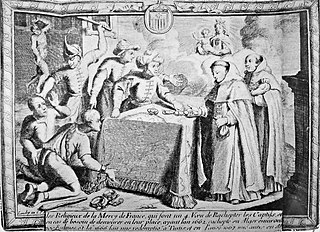
The Barbary slave trade, part of the Arab slave trade, involved the capture and selling of European slaves at slave markets in the Barbary states. European slaves were captured by Barbary pirates in slave raids on ships and by raids on coastal towns from Italy to the Netherlands, Ireland and the southwest of Britain, as far north as Iceland and into the Eastern Mediterranean.

Slavery on the Barbary Coast refers to the enslavement of people taken captive by the Barbary corsairs of North Africa.
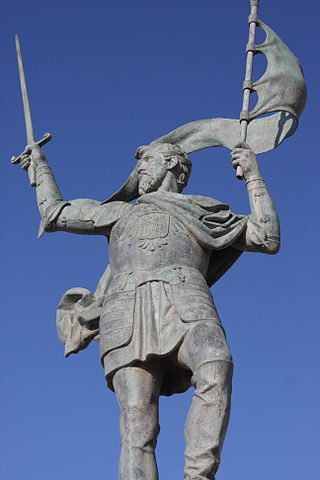
The Conquest of Melilla occurred on the 17th of September 1497, when a fleet sent by the Duke of Medina Sidonia occupied the north African city of Melilla.

Omar Agha was the Dey of the Deylik of Algiers from April 1815 to September 1817, after the assassination of his predecessor Mohamed Kharnadji on 7 April 1815, who had been in office for only 17 days.
"Proposals for concerted operation among the powers at war with the Pyratical states of Barbary" was the title of an identic note written by Thomas Jefferson in 1786, when he was the American ambassador to France. It proposed an intergovernmental military alliance for purposes of instituting a naval blockade of the Ottoman Regency of Algiers, which allowed the Barbary pirates to attack ships. The alliance was opposed by Congress and was never implemented.

Until 1815 the Beylik of Tunis maintained a corsair navy to attack European shipping, raid coastal towns on the northern shores of the Mediterranean and defend against incursions from Algiers or Tripoli. After 1815 Tunis tried, with limited success, to create a modern navy, which fought in the Greek War of Independence and the Crimean War.

The French-Algerian War of 1681–1688 was part of a wider campaign by France against the Barbary Pirates in the 1680s.

The Algerian–American War was a state of conflict which existed between the Regency of Algiers and the United States that lasted from 1785 to 1795. Occurring after the U.S. became independent from the British Empire as a result of the American Revolutionary War, Algiers declared war on the United States after realizing that American merchant shipping was no long under the protection of the Royal Navy.